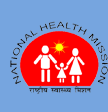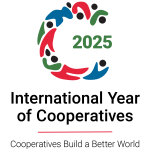| June 2020 | Detail message | June 2020 | Detail message |
1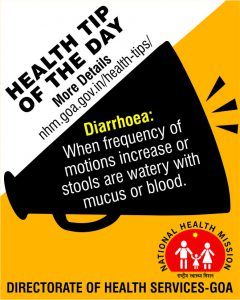 |
Diarrhoea is considered when stools have changed from usual pattern and are many & watery (more water than fecal matter). It is more common in settings of poor sanitation and hygiene, including a lack of safe drinking water. Most diarrhoea that causes dehydration is loose or watery. The normal frequent or loose stool of a breast fed baby are not diarrhea. Click | 16 | |
| 2 | 17 | ||
3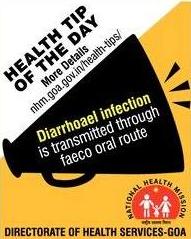 |
Diarhoeal infection is majorly transmitted through the faecal-oral route. The adjactent ‘F-diagram’ illustrates the different routes that the microbes of diarrhoea take from faeces, through the environment, to a new person. For example; microbes in faeces on the ground by a well can get into the water system and be drunk by a child, hands that have not been washed after going to the toilet can carry microbes onto foods, which are then eaten, infecting another child, who gets diarrhoea and spreads more microbes. click | 18 | |
4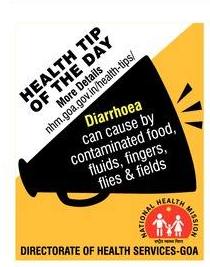 |
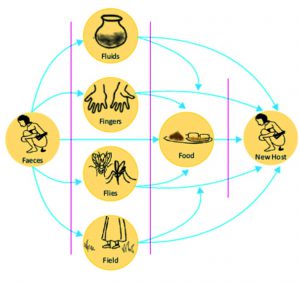 |
19 | |
5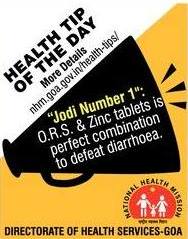 |
KEY INTERVENTIONS FOR CHILDHOOD DIARHOEA MANAGEMENT 1. Rehydrate the child with ORS solution • in case of no-dehydration follow Plan A at home, administer ORS to prevent dehydration • in case of some dehydration follow Plan B at health facility level, administer ORS to rehydrate. • In case of severe dehydration follow Plan C by use of IV fluids at health facility. 2. Administer Zinc dispersal tablets for 14 days, even after diarrhea stops. 3. Continued age appropriate feeding. 4. Rational use of antibiotics |
20 | |
6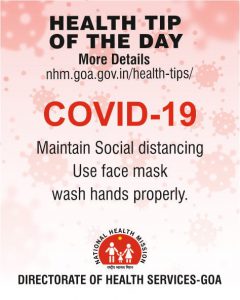 |
Click here for more details | 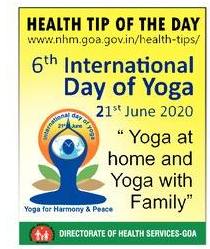 |
The International Day of Yoga has been celebrated annually on 21 June since 2015, following its inception in the United Nations General Assembly in 2014. Yoga is a physical, mental and spiritual practice which originated in India. The Indian Prime Minister, Narendra Modi, in his UN address suggested the date of 21 June, as it is the longest day of the year in the Northern Hemisphere and shares a special significance in many parts of the world. |
| 7 | 22 | ||
8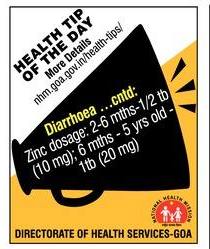 |
TEACH THE CARE GIVER TO PREPARE ZINC SOLUTION 1. Remove one tablet of Zinc (20 mg) from the blister pack. 2. If Zinc is to be administered to children 2 – 6 months age a. then break the tablet into half (i.e 10 mg). The tablet can be broken at the division line. Discard the remaining half. b. Take a clean tea spoon. c. Request the mother to express milk from her breast into the spoon and then add ½ tablet. 3. If Zinc is to be administered to children 6 months to 5 years age, a. there is no need to break the tablet as dose for these children is full tablet (20 mg) b. Take a clean tea spoon, place one tablet in the spoon c. Pour potable water carefully on the tablet taking care that the water does not reach the brim of the spoon. 4. Shake the spoon slowly till the tablet dissolves completely. Do not use fingertip or any material to dissolve the tablet. 5. Tell the mother to hold the child comfortably and ask her to feed the solution to the child. 6. If there is any powder remaining in the spoon, let the child lick or add little more breast milk or water to dissolve it and then ask the mother to give it again. 7. Counsel the mother to administer Zinc for once a day for total of 14 days. |
23 | |
| 9 | 24 | ||
| 10 | 25 | ||
| 11 | 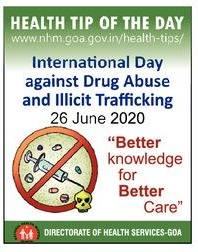 |
||
| 12 | 27 | ||
| 13 | 28 | ||
14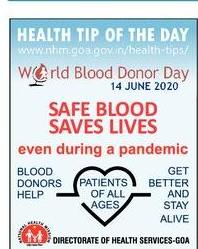 |
Every year on 14 June, countries around the world celebrate World Blood Donor Day. The event was organised for the first time in 2005,by a joint initiative of World Health Organisation, the International Federation of Red Cross and Red Crescent Societies to raise awareness of the need for safe blood and blood products, and to thank blood donors for their voluntary, life-saving gifts of blood.
Safe blood for all This year, World Blood Donor Day will once again be celebrated around the world on 14 June. The event serves to thank voluntary, unpaid blood donors for their life-saving gifts of blood and also to raise awareness of the need for regular blood donations to ensure that all individuals and communities have access to affordable and timely supplies of safe and quality-assured blood and blood products, as an integral part of universal health coverage and a key component of effective health systems. |
29 | |
| 15 | 30 | ||
June 2020
| Sun | Mon | Tue | Wed | Thu | Fri | Sat |
1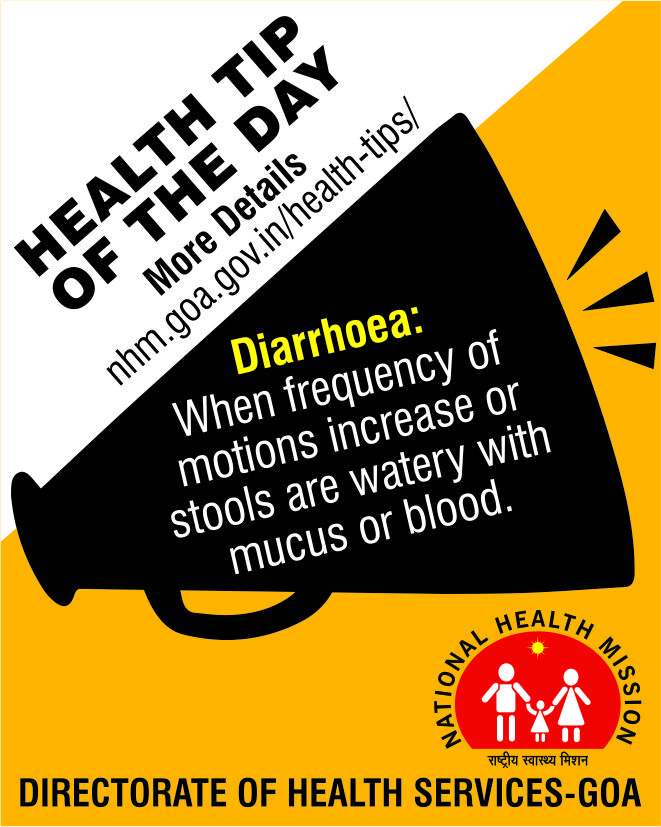 |
2 |  |
4 | 5 | 6 | |
| 7 | 8 | 9 | 10 | 11 | 12 | 13 |
| 14 | 15 | 16 | 17 | 18 | 19 | 20 |
| 21 | 22 | 23 | 24 | 25 | 26 | 27 |
| 28 | 29 | 30 | ||||
DHS is starting Health tips advertisements from 1st June onwards, Stay connected

